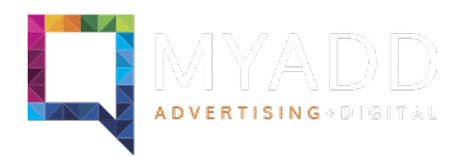Google Final URLs
There is no doubting the benefit of Google Ads for your business. Google Ads puts your business at the top of the pecking order when users search for terms related to your business. You do not need to rely on organic reach, you can pay Google to put your business above your competitors. Seems too good to be true? Well, it’s not, however only if you know how to maximise your reach and use Google Ads properly. Are you sitting there wondering why your ad hasn’t been converting? And are you sick of flushing money down the toilet? Well, you could pay a digital strategist (a.k.a. Myadd) to do it for you, but we can still share the little secret of final URLs with you and hopefully cure your scepticism. One of the biggest determining factors for the success of Google Ads is their final URLs. Without knowing how and when to implement them, you will be paying for donuts.
When using Google Ads, it is important to consider the three types of URLs. This includes the Google Ads display URL, the final URL, and the keywords URL. So let’s explore these in a bit more detail.
The Google Ads display URL:
The display URL is a shorted version of the Final URL. I can assure you, you don’t want a link with 30 characters clogging up your ad display, so it is recommended to fully take advantage of this option. Including relevant keywords in your display URL, it will give users an idea of where they might end up once clicking the link. It will also prevent redundant leads from affecting your ad results. A tip to make your ad more relevant is by including the keyword of your ad group in the display URL. If it’s a shortened bit.ly link, or simply your website home page, an optimised display URL will increase the relevance of your ad to your target audience.
The Final URL:
The final URL is exactly what it sounds like, the final URL of your ad. It is essentially the final destination in which your user will end up once they have clicked on your ad. So ensure this is correct so all your leads are ending up right where you want them to.
Keywords URL:
The keywords URL is often a missed opportunity that can prevent your Google ad from achieving the results you want. Commonly, keywords you would assume are associated with your ad, take users to a completely irrelevant page. Every time this happens, it is possible you are missing a website hit or sale. The solution to this? Google Ads allow you to associate specific URLs with keywords. When a keyword does not convert, adding a specific landing page may be a solution.
So all in all, capitalising on your Google ad’s URLs can give you the leads and conversions digital strategists rave about. The crux of Google Ads is relevancy. Without relevancy, you will not get results. When you optimise your URL, you improve ad relevance and customer experience. As a result, you will reduce your cost per click while increasing your quality score.
